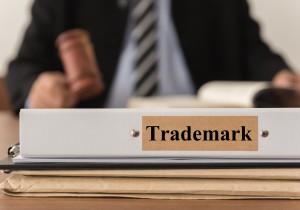A Couple Of Companies Get Popped For Infringing On This Football Brand's Trademarks
The biggest question in both cases will likely revolve around whether the use by each defendant is a trademark use or merely describing the products for sale.

(Image via Shutterstock)
Pop Warner, the popular brand known for its involvement with football competitions for 5- to 16-year-olds, is beginning to get very aggressive with enforcing its intellectual property rights. In the past couple of weeks, Pop Warner Little Scholars, Inc. and Pop Warner Authentic, Inc. have fired off a couple of trademark infringement lawsuits, one against Hanesbrands, Inc. and the other naming BSN Sport, LLC as the defendant.
The case against Hanesbrands, Inc. is pending in the U.S. District Court for the Central District of California and takes the position that the defendant, through its subsidiary brand Champion, has been offering merchandise using the Pop Warner word mark without a valid license in place. Hanesbrands, Inc. is also accused of unlawfully using the word mark to advertise football uniforms and for improper search engine optimization by including Pop Warner in the title of its paid advertisements on Google.

AI Presents Both Opportunities And Risks For Lawyers. Are You Prepared?
The plaintiffs claim that Hanesbrands, Inc.’s products are substantially similar in style and substance to those sold and licensed by the plaintiffs and that this is clear misappropriation of plaintiffs’ “brand of academic and athletic excellence.”
The case against BSN Sport, LLC is pending in the same federal district court but is based on a claim that BSN continued to use rights that it once had, beyond the term of an expired agreement. BSN Sport was once a licensee of the Pop Warner brand but, according to the complaint, the rights afforded to BSN in the licensing agreement expired on December 31, 2016. However, BSN’s website, as recently as the end of December 2020, was offering merchandise using Pop Warner’s word and design marks.
The biggest question in both cases will likely revolve around whether the use by each defendant is a trademark use or merely describing the products for sale. If Hanesbrands, Inc. was actively placing the Pop Warner marks on the clothing that it manufactures and sells, without consent, then a consumer may be likely to falsely believe an association or endorsement with the Pop Warner brand. Alternatively, if it, or BSN Sport, is merely describing uniforms intended for use with Pop Warner events, and the consumer is not likely to be confused as to Pop Warner’s association, then there may be an appropriate defense on such grounds.
For instance, the exemplar attached by the plaintiffs in the BSN Sports complaint does clearly indicate that the uniforms are by a separate company. That said, the same exemplar demonstrates that BSN Sports is advertising that Pop Warner has partnered with BSN Sports to serve as the official distributor of Pop Warner football uniforms, which appears to be a false advertisement if, in fact, their official relationship ended at the close of 2016. Either way, each company has a federal lawsuit that it must now defend against based on use of another brand’s registered trademarks without consent.
Sponsored

Curbing Client And Talent Loss With Productivity Tech

AI Presents Both Opportunities And Risks For Lawyers. Are You Prepared?

Law Firm Business Development Is More Than Relationship Building

Generative AI at Work: Boosting e-Discovery Efficiency for Corporate Legal Teams
Darren Heitner is the founder of Heitner Legal. He is the author of How to Play the Game: What Every Sports Attorney Needs to Know, published by the American Bar Association, and is an adjunct professor at the University of Florida Levin College of Law. You can reach him by email at [email protected] and follow him on Twitter at @DarrenHeitner.
Sponsored

Generative AI at Work: Boosting e-Discovery Efficiency for Corporate Legal Teams








